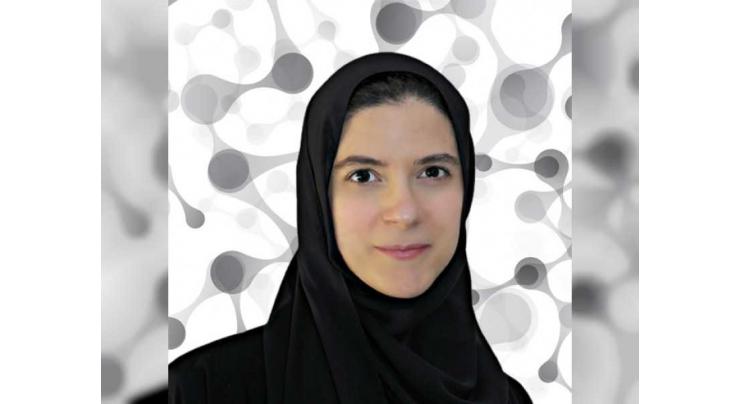
- Home
- Middle East
- UAE
- Millions die of infectious diseases for unaffordable cost of medical treatment: Emirati expert
Millions Die Of Infectious Diseases For Unaffordable Cost Of Medical Treatment: Emirati Expert
Faizan Hashmi Published November 20, 2019 | 05:30 PM

By Binsal Abdulkader ABU DHABI, (UrduPoint / Pakistan Point News / WAM - 20th Nov, 2019) Millions of people die of infectious diseases every year in several poor countries where cost of medical treatment is very high, and that reveals the role of income inequality in such preventable deaths, an Emirati expert said.
"In several countries, out of pocket expense of medical treatment is very high it means people have to pay a portion of their medical treatment costs. In some countries it is up to 59 percent whereas less than 20 percent is the reasonable proportion," said Dr. Maha Barakat, Chair of RBM Partnership to End Malaria, the largest global platform for coordinated action towards a world free from malaria.
She added that in most of the Malaria infected countries (90 percent of them in Africa), the out of pocket medical expense could go up to 59 percent, which means, of US$100 medical bill, patients pay up to US$59 from their pocket, as the treatment is not fully state-funded.
"It causes huge financial burden to patients," Dr. Barakat, who also works as Senior Advisor for Mubadala, told the Emirates news Agency, WAM, on the sidelines of the Reaching the Last Mile, RLM, Forum in Abu Dhabi on Tuesday.
Most of the 400,000 people who died of Malaria in 2017 across the globe were children and women, she said, quoting the World Malaria Report 2018.
"Every two minute a child is dying of Malaria. This is an unacceptable mortality rate," said Dr. Barakat who had served as Director-General of the Health Authority-Abu Dhabi from 2013 to 2018.
This happens because Malaria treatment is very expensive in those countries. "This is an example of income inequality.
If you have a low income, you will not get treatment because you cannot afford it," she explained.
Implementing the United Nations Sustainable Development Goals, SDGs, is the solution to this problem, she said, adding that Universal Health Coverage, UHC, is the most important Goal, Dr Barakat said.
According to World Health Organisation, WHO, the UHC enables everyone to access the services that address the most significant causes of disease and death, and ensures that the quality of those services is good enough to improve the health of the people who receive them.
At the United Nations General Assembly in September, all 193 UN member states made a pledge to implement the UHC by 2030.
According to the WHO, three infectious diseases were ranked in the top ten causes of death worldwide in 2016, with 5.7 million deaths, such as lower respiratory infections (3 million deaths), diarrheal diseases (1.4 million deaths), and tuberculosis (1.3 million deaths).
Global leaders convened at the RLM Forum in Abu Dhabi on Tuesday discussed the ways to eliminate and eradicate such infectious diseases.
They affirmed their commitment to eradicate polio and pledged a total of US$2.6 billion, as part of the first phase of the funding needed to implement Polio Endgame Strategy 2019-2023 of the Global Polio Eradication Initiative, GPEI.
Pledges are from a diverse array of donors, including US$160 million from His Highness Sheikh Mohamed bin Zayed Al Nahyan, Crown Prince of Abu Dhabi and Deputy Supreme Commander of the UAE Armed Forces, who was the host of the GPEI pledging moment at the Forum.
Related Topics
Recent Stories

Mired in crisis, Boeing reports another loss

Session Awarding Ceremony 2024 held at Cadet College Muzaffarabad

Austrian ski great Hirscher to make comeback under Dutch flag

Pakistan, Japan agrees to convene 'Economic Policy Dialogue'

FM Dar conveys deepest sympathy on torrential rains devastation in UAE

Spain PM Sanchez says weighing resignation after wife's graft probe

Tennis: ATP/WTA Madrid Open results - 1st update

Long-lost Klimt portrait auctioned off for 30 mn euros

Osaka seals first win on clay since 2022 in Madrid

Earthquake jolts Karachi

Sindh minister orders operation after attack on police in Ghotki

TikTok to fight US ban law in courts
More Stories From Middle East
-

UAE announces ‘Zero Bureaucracy Program’ to reduce bureaucracy
3 months ago -

COP28 President-Designate welcomes Transitional Committee agreement to operationalise Loss and Damag ..
6 months ago -

Global Media Congress 2023 to feature Co-Production Majlis as a new networking platform
6 months ago -

Young female athletes shine at Abu Dhabi World Youth Jiu-Jitsu Championship
6 months ago -

King of Jordan receives Abdullah bin Zayed and ministers participating in Arab coordination meeting
6 months ago -

Abdullah bin Zayed participates in coordination meeting of Arab foreign ministers, joint meeting wit ..
6 months ago
-

3rd annual conference of Emirates Society of Clinical Microbiology kicks off in Dubai
6 months ago -

SIBF 2023 hosts Nobel laureate to discuss emergence of ‘Afrofuturism’ in global discourse
6 months ago -

ALC announces winners of Kanz Al Jeel Award 2023
6 months ago -

SIBF turns spotlight on remarkable contributions of women
6 months ago -

Global assets in spot bitcoin ETFs hit $4.16 billion
6 months ago -

Rescuers struggle to find Nepal quake survivors as deaths reach 157
6 months ago











